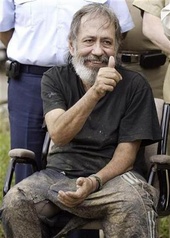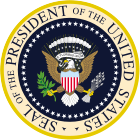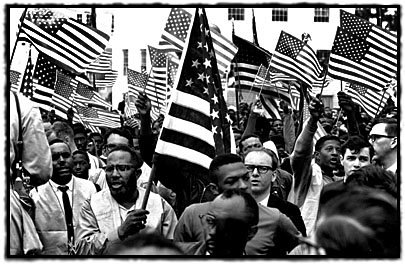 The Republic of Colombia is the 4th largest nation in South America birthed from colonialism and the name Christopher Columbus with two main warring factional parties with embarrassing fringe elements, Conservatives and Liberals. Mix in the profligate drug trade of highly lucrative cocaine and the mix is permanently combustible. Drug cartels, both Medellín and Cali, were world famous for their brutal kidnappings and torture.
The Republic of Colombia is the 4th largest nation in South America birthed from colonialism and the name Christopher Columbus with two main warring factional parties with embarrassing fringe elements, Conservatives and Liberals. Mix in the profligate drug trade of highly lucrative cocaine and the mix is permanently combustible. Drug cartels, both Medellín and Cali, were world famous for their brutal kidnappings and torture.The Andean foothills and the picturesque coast are where the majority of the population reside while the steamy tropical Amazon jungle portion is used to hide a multitude of sins and long held hostages. Fuerzas Armadas Revolucionarias de Colombia or FARC holds a four star terrorist tag in the US and in official Colombia, but not with Hugo Chavez's Venezuela or a Castro's Cuba because of their Marxist-Lenin communist origins inspired by Bolivar. Common cause was attempted multiple time with the cartels by rebel members of FARC.
Today's FARC is below 10,000 guerrillas after a rampaging heyday controlling much of the rainforest and the production of cocaine. Bogotá citizens of import held another lucrative
 fundraising means, kidnapping for ransom. Except, when FARC does the kidnapping, it is for years or decade and the victim is forced to survive the most treacherous of environments while being chained like the neighborhood dog with nonstop beatings. FARC twin system of oppression forced juveniles, boys and girls, into servitude and hostages into submission. Hostages stumbling out of the territory into the civilization after years make for dramatic moments to crush the supposed invincibility of FARC. FARC-EP is up against a conservative president that is determined to cur off their supply lines and deploy the military to take back the country by driving the rebels deeper into ferocious foilage while decreasing their numbers by offering incentives for defections and assassinations. That lead to another miracle emerging from the depths of human depravity.
fundraising means, kidnapping for ransom. Except, when FARC does the kidnapping, it is for years or decade and the victim is forced to survive the most treacherous of environments while being chained like the neighborhood dog with nonstop beatings. FARC twin system of oppression forced juveniles, boys and girls, into servitude and hostages into submission. Hostages stumbling out of the territory into the civilization after years make for dramatic moments to crush the supposed invincibility of FARC. FARC-EP is up against a conservative president that is determined to cur off their supply lines and deploy the military to take back the country by driving the rebels deeper into ferocious foilage while decreasing their numbers by offering incentives for defections and assassinations. That lead to another miracle emerging from the depths of human depravity.Earlier this year, FARC suffered more humiliation of the Colombian military rescuing hostages without a shot being fired by tricking them. American defense contractors held for five years were among those released alongside former presidential candidate Ingrid Betancourt on 2 July. This escape is a double whammy with the ex-FARC guard who aided congressman and college economics's lecturer Lizcano's escape after his 5 August, 2000 abduction, winning asylum to France with his paramour and a cash reward of just over $400,000 from the USA. France has been instrumental in seeking means to release hostages with the added incentive of Betancourt being a dual French citizen.
Oscar Tulio Lizcano, 63, escaped through the jungles, marching for three days with his FARC jailer before reaching an army post on Sunday where the guerrilla surrendered to troops.
His escape is the latest blow to the Revolutionary Armed Forces of
Colombia, or FARC, which has lost three top commanders this year as
President Alvaro Uribe's U.S.-backed military campaign drives rebels deeper into remote jungles."The loneliness was terrible. They were forbidden to talk to me," Lizcano, who once taught university classes, told Caracol radio. "I put sticks in the ground... and gave them names and taught them classes, two or three hours a day in classes, imagining I was in a classroom."
Lecturing stick students on World War I, Bolivarianism and Philosophy in an open air jungle amphitheater full of parasites, biting bugs and poisonous snakes was an innovative
 way to pass the time and keep the mind working under terrible circumstances. Not allowed to speak to his baker's dozen of guards, even as they starved due to the disruption of their supply lines, the student sticks were his company for three hours a day. The occasional treat was a radio that played family messages on Sunday nights or the meal of heart of palm or sugar cane.
way to pass the time and keep the mind working under terrible circumstances. Not allowed to speak to his baker's dozen of guards, even as they starved due to the disruption of their supply lines, the student sticks were his company for three hours a day. The occasional treat was a radio that played family messages on Sunday nights or the meal of heart of palm or sugar cane.Meanwhile, Colombia is on an international charm offensive led by President Alvaro Uribe. The image is that Columbia is cleaning up its act - narco-terrorism and there should be every reason for the US Congress to approve the Colombian Free Trade Agreement according to conservatives. Strong on crime continues when Colombia seizes a record stash of ten tons of cocaine destined for Veracruz, Mexico, via Venezuela demonstrating a resurgent cartel system, when in walks one of the latest worst cases of human rights abuses in the rag-tag emaciated form of Oscar Tulio Lizcano. (Photo AFP/Getty)
More people are familiar with the depravity of Pablo Escobar. Ron Chepesiuk brings the Cali cartels modus operandi into stark relief as they used guile and cunning to build a chilling corporate structure that too k more than twenty years and a twisted human wreckage to unravel. The book that lays it all out in painful detail is Drug Lords: The Rise and Fall of the Cali Cartel.







 Presidential campaigns rate their own bookshelf. There is much about the Obama Campaign of energetic septuagenarian and barely twenty one year old volunteers, the vaunted ground game, polls and GOTV that will fascinate campaign scholars and political junkies for Ages. But who the president is will be foreshadowed as the
Presidential campaigns rate their own bookshelf. There is much about the Obama Campaign of energetic septuagenarian and barely twenty one year old volunteers, the vaunted ground game, polls and GOTV that will fascinate campaign scholars and political junkies for Ages. But who the president is will be foreshadowed as the  There will be $8.5 million worth of high tech office space to handle a cast of thousands and a discreet place to hide the budget wars. There is a new A much noted meeting of the president and president elect. The future first lady will get a tour that will make her gulp from the current first lady as her brain plays toss with educational choices for the kids. Speaking of the kids, cough up the dog quickly please Michelle & Barack, Sasha & Malia will not have as many friends as they do in Chicago! Will the kids bedrooms be on the third official floor with Mom & Dad or will they want to be up near the solarium?
There will be $8.5 million worth of high tech office space to handle a cast of thousands and a discreet place to hide the budget wars. There is a new A much noted meeting of the president and president elect. The future first lady will get a tour that will make her gulp from the current first lady as her brain plays toss with educational choices for the kids. Speaking of the kids, cough up the dog quickly please Michelle & Barack, Sasha & Malia will not have as many friends as they do in Chicago! Will the kids bedrooms be on the third official floor with Mom & Dad or will they want to be up near the solarium? 



 It is one of those chicken and egg first type things. Hungry people need money to purchase foods to quiet the pangs of an empty stomach. Stable financial systems are needed to ensure people have a proper diet. One does not exist without the other in an endless feedback loop but the 2008 celebration of World Food Security: The Challenges of Climate Change and Bioenergy continues apace without a trace of irony.
It is one of those chicken and egg first type things. Hungry people need money to purchase foods to quiet the pangs of an empty stomach. Stable financial systems are needed to ensure people have a proper diet. One does not exist without the other in an endless feedback loop but the 2008 celebration of World Food Security: The Challenges of Climate Change and Bioenergy continues apace without a trace of irony. The disparity between the issues culminates in an annual
The disparity between the issues culminates in an annual  "The
"The  The sadder part is pockets of the world are being hit harder than reeling developed nations. Even inside first world countries there are pockets of heartbreak and a ravaged middle class that are showing up at the local food banks grateful for any assistance. The strongest nation on earth cannot properly feed all of its people even though there is an export market for American foodstuffs. America will cough up 5.5 billion in contributions. Juxtapose that against a defense spend of $10 billion a month just in Iraq. Pope Benedict pulled no punches about Sin when he pointed out the amount of money going to military efforts, horrendous corruption schemes leaving a declining amount to feed the world's citizens.
The sadder part is pockets of the world are being hit harder than reeling developed nations. Even inside first world countries there are pockets of heartbreak and a ravaged middle class that are showing up at the local food banks grateful for any assistance. The strongest nation on earth cannot properly feed all of its people even though there is an export market for American foodstuffs. America will cough up 5.5 billion in contributions. Juxtapose that against a defense spend of $10 billion a month just in Iraq. Pope Benedict pulled no punches about Sin when he pointed out the amount of money going to military efforts, horrendous corruption schemes leaving a declining amount to feed the world's citizens. 





 Animals spread disease. Climate change is altering the bounds of nature and
Animals spread disease. Climate change is altering the bounds of nature and 








 Meanwhile, let it snow, let it snow let it snow.
Meanwhile, let it snow, let it snow let it snow. 
 Russia gave the literate world creative and human tales of woe that are art and parcel of the classics. The angst embedded in some of the heart shredding tales of Tolstoy's
Russia gave the literate world creative and human tales of woe that are art and parcel of the classics. The angst embedded in some of the heart shredding tales of Tolstoy's 
 Bolsheviks lead the execution of the family with jewels of renown the world over. Coronations were lavish affairs. For ninety years
Bolsheviks lead the execution of the family with jewels of renown the world over. Coronations were lavish affairs. For ninety years 

 The debate was lost by John McCain as soon as he suspended his campaign to return to the swamp that is Washington DC to bring about a deal from a bunch of republican lawmakers that hate his guts but needed him to appear to be leading something. Instead, the real debate was hosted by the current Chief Oblivious Economic Commander residing in the White House in the cabinet room. Little china cups of coffee were set about the table and a seating chart was made as if it were a state dinner.
The debate was lost by John McCain as soon as he suspended his campaign to return to the swamp that is Washington DC to bring about a deal from a bunch of republican lawmakers that hate his guts but needed him to appear to be leading something. Instead, the real debate was hosted by the current Chief Oblivious Economic Commander residing in the White House in the cabinet room. Little china cups of coffee were set about the table and a seating chart was made as if it were a state dinner. 
 Meanwhile, McGrumpy's second should he fall on his sword was Sarah Scarlett Lipstick who promptly got orally trounced by a third place steel magnolia news anchor who had once been told never be seen on CNN's airwaves again. Then came the debate with Joe Biden that included winking and shoutouts as the new catcalls for commander in chief. This presidential campaign season has been the theater of the absurd and the curtain rises on a new debate on Tuesday night.
Meanwhile, McGrumpy's second should he fall on his sword was Sarah Scarlett Lipstick who promptly got orally trounced by a third place steel magnolia news anchor who had once been told never be seen on CNN's airwaves again. Then came the debate with Joe Biden that included winking and shoutouts as the new catcalls for commander in chief. This presidential campaign season has been the theater of the absurd and the curtain rises on a new debate on Tuesday night.





